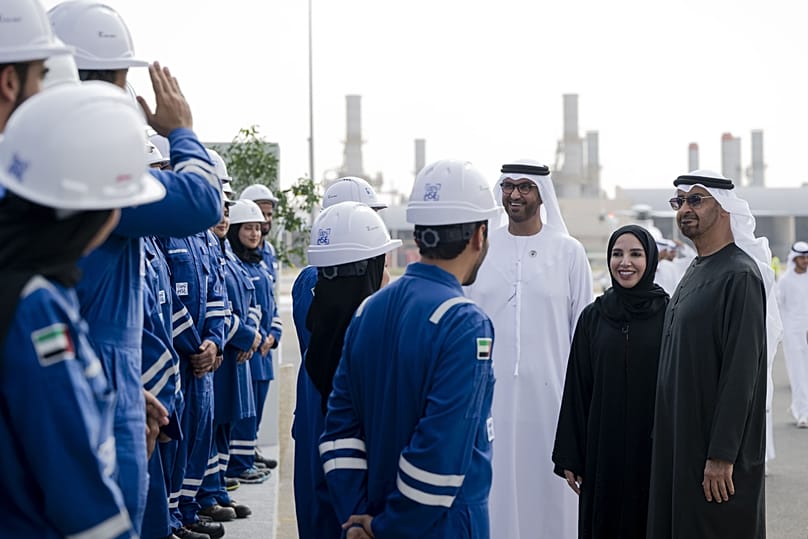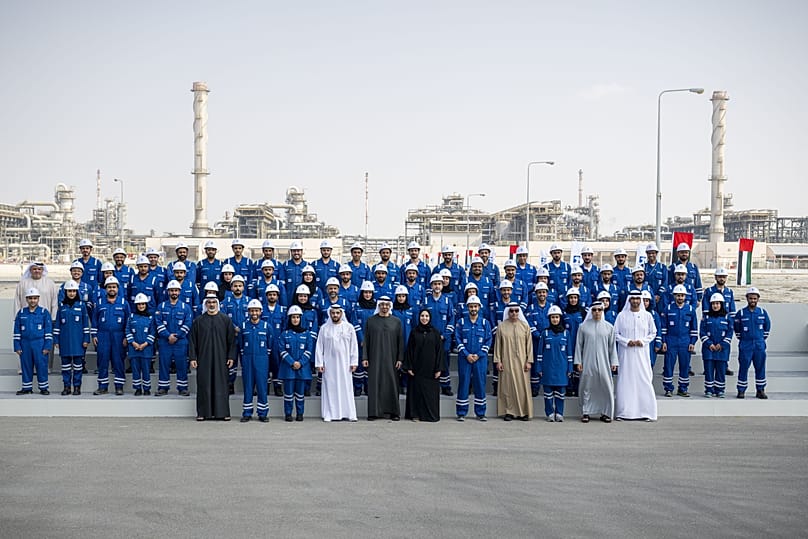The focus is on scaling production, reserves, and investment over the next five years as ADNOC deepens its role in global oil and gas markets.
ADNOC has approved a $150 billion (€130bn) capital spending plan for 2026 to 2030, as UAE President Sheikh Mohamed bin Zayed Al Nahyan chaired the company’s annual board meeting at the Habshan complex in Abu Dhabi.
 ADVERTISEMENT
ADVERTISEMENT
 ADVERTISEMENT
ADVERTISEMENT
The meeting was held inside ADNOC Gas’ main operations control room, underscoring the strategic importance of Habshan, which supplies around 60% of the UAE’s natural gas to power the country’s energy and industrial sectors.
Board members confirmed a further expansion of the UAE’s hydrocarbon stores, with oil reserves rising to 120 billion barrels and natural gas reserves reaching 297 trillion cubic feet, reinforcing Abu Dhabi’s position as one of the world’s largest holders of oil and gas resources.
ADNOC also announced new oil and gas discoveries totalling more than 1.2 billion barrels of oil equivalent, supported by large-scale 3D seismic surveys and artificial intelligence-powered data analysis to unlock previously inaccessible reservoirs.
A new operating company, ADNOC Ghasha, was approved to manage the Ghasha Concession development, which is expected to produce 1.8 billion cubic feet of gas per day and 150,000 barrels per day of oil and condensates. Work on the Hail and Ghasha offshore mega-project is progressing as part of the company’s wider gas expansion strategy.
The board reviewed progress on developing Abu Dhabi’s unconventional resources, those that require advanced extraction methods. These are estimated at 160 trillion cubic feet of gas and 22 billion barrels of oil.
ADNOC said it plans to inject AED 220bn (€52bn) into the UAE economy over the next five years through its local value programme, supporting domestic manufacturing and small and medium-sized enterprises in line with the country’s industrial diversification drive.
The company also highlighted the rapid growth of XRG, its international energy investment arm, which has increased in value from $80bn (€70bn) to $151bn (€131bn) since its launch, positioning Abu Dhabi as a fast-growing global energy investor.
Technology was a central theme of the meeting, with ADNOC outlining its push to expand the use of artificial intelligence, robotics, and autonomous systems across its operations. The board meeting itself was supported by an internal AI tool designed to enhance decision-making and accelerate strategic planning.
Progress was also reported on the TA’ZIZ chemicals complex in Al Ruwais, which is set to become one of the largest integrated chemical platforms in the Gulf, with production capacity expected to reach 4.7 million tonnes per year and further expansion planned by 2028.












